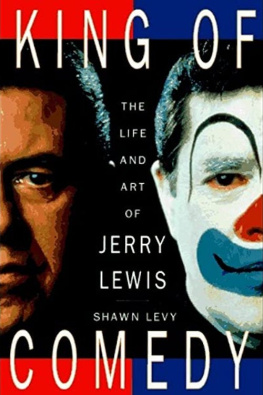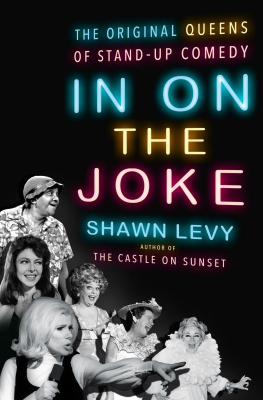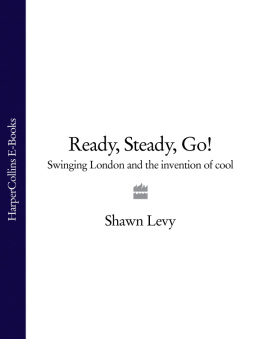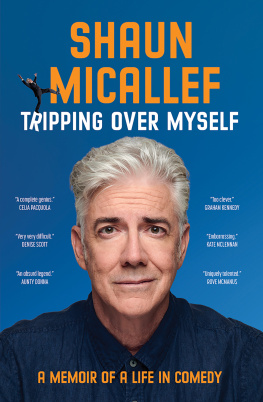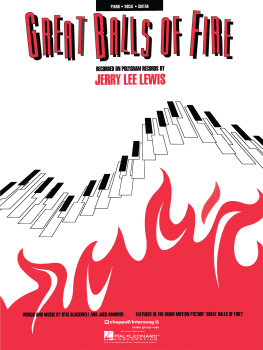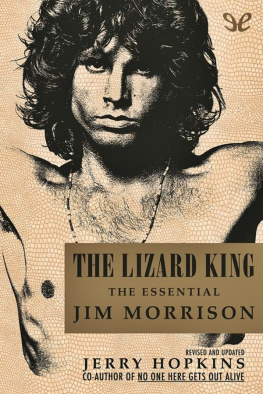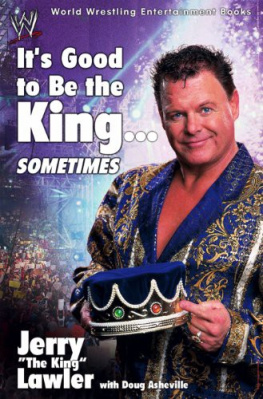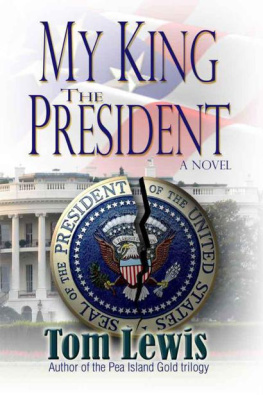Shawn Levy - King of Comedy: The Life and Art of Jerry Lewis
Here you can read online Shawn Levy - King of Comedy: The Life and Art of Jerry Lewis full text of the book (entire story) in english for free. Download pdf and epub, get meaning, cover and reviews about this ebook. year: 2016, publisher: St. Martins Press, genre: Non-fiction. Description of the work, (preface) as well as reviews are available. Best literature library LitArk.com created for fans of good reading and offers a wide selection of genres:
Romance novel
Science fiction
Adventure
Detective
Science
History
Home and family
Prose
Art
Politics
Computer
Non-fiction
Religion
Business
Children
Humor
Choose a favorite category and find really read worthwhile books. Enjoy immersion in the world of imagination, feel the emotions of the characters or learn something new for yourself, make an fascinating discovery.
- Book:King of Comedy: The Life and Art of Jerry Lewis
- Author:
- Publisher:St. Martins Press
- Genre:
- Year:2016
- Rating:4 / 5
- Favourites:Add to favourites
- Your mark:
- 80
- 1
- 2
- 3
- 4
- 5
King of Comedy: The Life and Art of Jerry Lewis: summary, description and annotation
We offer to read an annotation, description, summary or preface (depends on what the author of the book "King of Comedy: The Life and Art of Jerry Lewis" wrote himself). If you haven't found the necessary information about the book — write in the comments, we will try to find it.
Shawn Levy: author's other books
Who wrote King of Comedy: The Life and Art of Jerry Lewis? Find out the surname, the name of the author of the book and a list of all author's works by series.
King of Comedy: The Life and Art of Jerry Lewis — read online for free the complete book (whole text) full work
Below is the text of the book, divided by pages. System saving the place of the last page read, allows you to conveniently read the book "King of Comedy: The Life and Art of Jerry Lewis" online for free, without having to search again every time where you left off. Put a bookmark, and you can go to the page where you finished reading at any time.
Font size:
Interval:
Bookmark:


King of Comedy
THE LIFE AND ART OF JERRY LEWIS
SHAWN LEVY
ST. MARTINS PRESS  NEW YORK
NEW YORK
The author and publisher have provided this e-book to you for your personal use only. You may not make this e-book publicly available in any way. Copyright infringement is against the law. If you believe the copy of this e-book you are reading infringes on the authors copyright, please notify the publisher at: http://us.macmillanusa.com/piracy.
To my father, Jerome Sanford Levy, who always knew it could happen
I have never been able to develop a faade to hide behind. My emotions function on a separate wire. I can stand toe to toe with two oxes and never know Im hurt until Im picked up bleeding. But if a guy doesnt say good morning back, I can have a heart attack. Im more than just a great movie star. Im also a neurotic, temperamental imbecile.
Jerry Lewis, 1963
For almost half a century, America has had more of Jerry Lewis than it has known what to do with. Indeed, it has had more Jerry Lewises than it has known what to do with.
His life has been a continuous parade of public and private faces; some the world has loved, while others have been almost universally loathed. The arc of his life and careerfrom live-wire life of the party to openly angry once-washolds a dark fascination for anyone interested in America, our popular culture or the psychology of celebrity.
Few entertainers have shed so many skins in public as Jerry Lewis. The first was Jerry the Skinny Young Maniac, who bounced into the American consciousness in 1948 alongside the impeccably disengaged Dean Martin. Eight years later, after the shattering split of Martin and Lewis, emerged Jerry the Consummate Showman, singing Al Jolson songs and acting in sentimental films. With the early 1960s came Jerry the Total Filmmaker, a movie director who strove for the acclaim enjoyed by Charles Chaplin but found an attuned audience only in Europe. Presently, Jerry the Philanthropist was born, cajoling Americans into writing checks for muscular dystrophy research each Labor Day. Since the mid-1970s, a quixotically short-tempered Jerry the Elder Statesman has become familiar, barking out his belligerent claims to greatness in movies, TV shows, and magazine interviews.
And the cadences of this evolution echo our own history. No American entertainer embodied the fate of the nation since World War II more succinctly: the giddy surplus of the postwar years; the arrogant confidence of the Fifties; the incomprehensible unraveling of the Sixties and Seventies; and our subsequent struggle to reclaim a lost mantle and place blame for the downfall. Its no coincidence that the most triumphant moment of Jerrys careerthe debut of his greatest film, the mounting of a national tour in support of it, and an unprecedented wave of expectation for an innovative new TV seriescame just weeks before the death of John Kennedy. Soon after, along with the dissolution of the national consensus, came the marginalization of the Court Jester of Camelot.
Jerrys reflection of the national soul has been his blessing and, in recent decades, his curse. More than any entertainer of his generation, he became a lightning rod for ridicule, the butt of quick laughs at the expense of charity telethons, French intellectuals, or physical comedy. The very thought of his voice, his comic style, or his movies provokes uncomfortable, snide laughter in many quarters.
Yet love it or hate it, Jerrys best work is the product of a completely unique comic sensibility. A gifted mimic, he studied a curious mixture of estimable predecessors, from whose work he was able to glean various tropes. Jerrys comedy evinces some of the Dadaist mania of Harpo Marx, the audience-beseeching brashness of Al Jolson, the gentle, fluent timing of Stan Laurel, the impish meekness of Charles Chaplin, the brassy childishness of Fanny Brice, and the grotesque mercuriality of the lamentably underrated Harry Ritz, whose goo-goo eyes, vocal gymnastics, and wild body language also informed much of Sid Caesars art.
Jerrys gift, of course, was that he could allude to so many different comedic and performing styles while maintaining his air of organic ease. The young Jerry Lewis was a pyrotechnic wonder, a font of gibberish, voices, and caterwauls, a living Gumby doll, a bouncing Super Ball. He was so fast and natural that he made it look elementary, but it wasnt: Today, the undeniably agile Jim Carrey wows audiences and scoops up $20 million per film with a pale imitation of Jerry, a demeaning act with no taste, no soul, no center. Even at its crassestand it could be crass and enobling within minutesJerrys comedy tried to be about the human spirit. It just happened to be the human spirit of a truly excitable boy.
Its no wonder, then, that hes among the most influential and imitated figures in the history of comedy. Many of the biggest comedy stars of the Seventies (Woody Allen, Richard Pryor, Robin Williams, Chevy Chase, Steve Martin, Andy Kaufman), Eighties (Martin Short, Eddie Murphy, Bill Murray, Pee Wee Herman), and Nineties (Jim Carrey, Pauly Shore, Adam Sandler) can trace their comic roots directly back to the Jerry Lewis of the Forties, Fifties, and Sixties. He single-handedly created a style of humor that was half anarchy, half excruciation. Even comics who never took a pratfall in their careers owe something to the self-deprecation Jerry introduced into American show business.
Its easy to see why he was so influential. His career is absolutely unparalleled: He was one of the last, and probably the biggest, of the Borscht Belt comedians; one of the last performers to pass from the variety stage to film and television; half of the most popular two-man performing act of all time; the uncontested premier practitioner of physical comedy during most of his career; the first director who debuted in talkies to direct himself; the first Jewish comedian to direct himself; a technological innovator in the cinema; a Top Ten recording artist; the highest-paid performer in Hollywood; the highest-paid performer on network televisiona catalog of feats he accomplished before turning forty. When he turned his attention to philanthropy after his entertaining career began to wane, he raised well over $1 billion. In the annals of show business, he bridges the gap in screen comedy between Charlie Chaplin and Woody Allen, on television between Milton Berle on Texaco Star Theater and John Belushi on Saturday Night Live, on the stage between Al Jolson and Lenny Bruce. He met nine Presidents and performed for more than half of them. He was nominated for a Nobel Peace Prize. There is no other story remotely like it.
And yet, despite its uniqueness, Jerrys career constitutes a cultural history of American show business. One of the last performers to pass through the closing doors of burlesque comedy and Borscht Belt showmanship, Jerry would always carry traces of those bygone forms in his art; indeed, Jerrys entire career has been a version of Saturday night in a Catskills hotel, a series of variety acts strung together by an adrenalized emcee. But Jerry Lewis has never been a nostalgia-monger; his combination of slapstick comedy, traditional Jewish humor, and vaudeville brashness has always been startlingly modern. From the debut of Martin and Lewis, his was a groundbreaking acttearing up stages and sets, breaking through the fourth wall of the TV and movie screens, skewering the conventions of show business even while dutifully emulating them.
Font size:
Interval:
Bookmark:
Similar books «King of Comedy: The Life and Art of Jerry Lewis»
Look at similar books to King of Comedy: The Life and Art of Jerry Lewis. We have selected literature similar in name and meaning in the hope of providing readers with more options to find new, interesting, not yet read works.
Discussion, reviews of the book King of Comedy: The Life and Art of Jerry Lewis and just readers' own opinions. Leave your comments, write what you think about the work, its meaning or the main characters. Specify what exactly you liked and what you didn't like, and why you think so.

